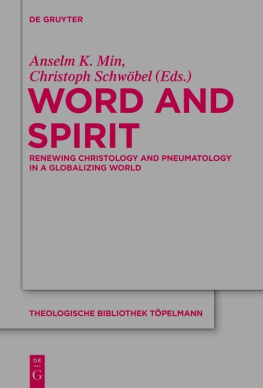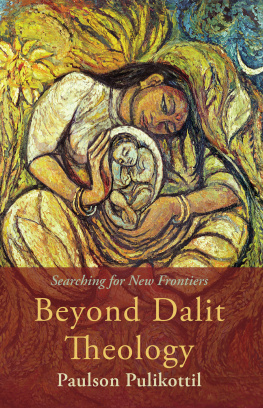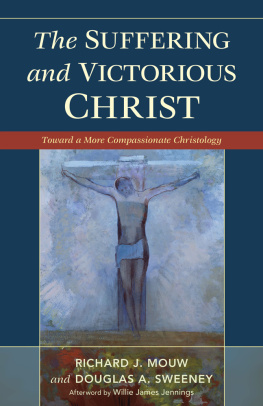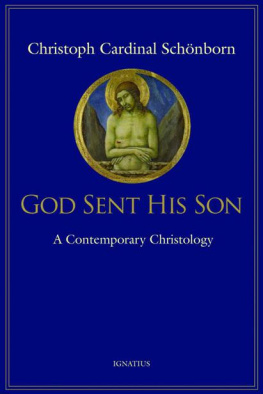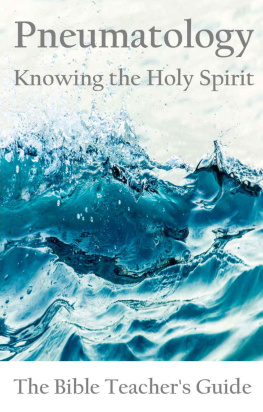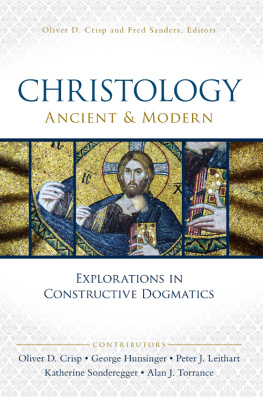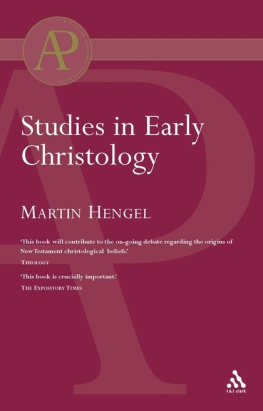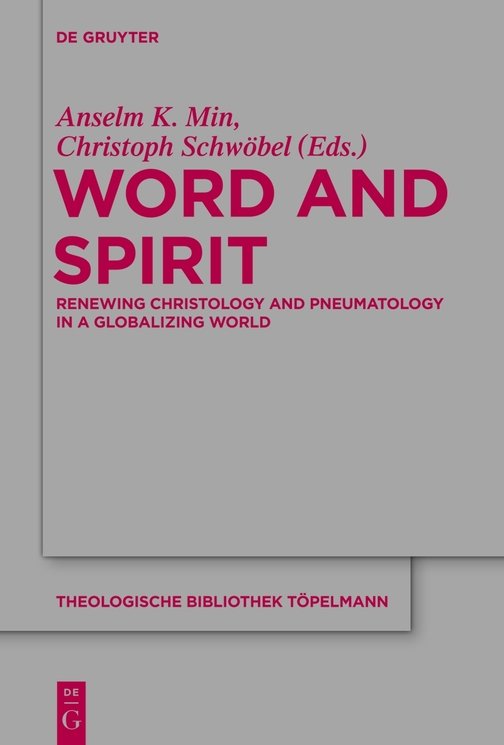Notes on Contributors
Lieven Boeve
is Professor of Fundamental Theology and dean of the Faculty of Theology at the Katholieke Universitiet Leuven (Belgium). Since 2000 he has also served as the coordinator of the research group Theology in a Postmodern Context, now part of the research platform The Normativity of History. His research concerns theological epistemology, religious experience, truth in faith and theology, tradition development, and hermeneutics. In addition to co-editing numerous volumes, he is the author of Interrupting Tradition: An Essay on Christian Faith in a Postmodern Context (2003) and God Interrupts History: Theology in a Time of Upheaval (2007). He was the international president of the European Society for Catholic Theology (2005 2009).
Heup Young Kim
is Professor of Systematic Theology at Kangman University (South Korea), former dean of the College of Humanities and Liberal Arts, the Graduate School of Theology, and the University Chapel, and one of the founding members of the International Society for Science and Religion. He researches and publishes in the areas of Asian constructive theology, comparative theology, interfaith dialogue, and the relationship between science and religion. His English-language monographs include Wang Yang-ming and Karl Barth: A Confucian-Christian Dialogue (1996) and Christ & the Tao (2010).
Pan-chiu Lai
is currently Associate Dean of the Faculty of Arts and Professor of the Department of Cultural & Religious Studies at The Chinese University of Hong Kong. His research interests include interreligious dialogue, Christian theology, religion and culture, and religion and science. In addition to his publications in Chinese, his English-language publications include Towards a Trinitarian Theology of Religions: A Study of Paul Tillichs Thought (1994) and articles in academic journals such as Studies in World Christianity, Studies in Interreligious Dialogue, Buddhist-Christian Studies, and Ching Feng. He has co-edited with Jason Lam Sino-Christian Theology: A Theological Qua Cultural Movement in Contemporary China (2010).
Ki-Sang Lee
is Professor of Philosophy at Hankuk University of Foreign Studies, Seoul. His major publications (in Korean) include The Reception of Western Philosophy and the Search for Korean Philosophy (2002), Philosophizing Here in Korea (2003), Opening a Korean Philosophy with Dasuk (2003), Contents and Culture: Philosophy (2009), and The Era of the Global Village and Cultural Contents (2009). He has published articles in English and German on the problem of life, Ryu Young-Mo, and the Korean understanding of being. He is the translator of many of Heideggers works including Sein und Zeit and editor of the five-volume Encyclopedia of Philosophy in Korea (in Korean).
Anselm Kyongsuk Min
is Maguire Distinguished Professor of Philosophy of Religion and Theology at Claremont Graduate University (USA). He is the author of, among many other publications, Dialectic of Salvation: Issues in Theology of Liberation (1989); The Solidarity of Others in a Divided World: A Postmodern Theology after Postmodernism (2004); and Paths to the Triune God: An Encounter between Aquinas and Recent Theologies (2005). He has published numerous articles on Hegel, postmodernism, religious pluralism, Asian theology, the Trinity, liberation theology, Aquinas, predication of divine names, Christology and Pneumatology. He is currently working on a systematic theology of globalization.
Markus Mhling
is Professor of Systematic Theology and Interdisciplinary Dialogue at the Leuphana Universitt Lneberg (Germany), and from 2009 2010 was Guest Professor at Kings College, University of Aberdeen (Scotland). His research interests range from the doctrines of God, reconciliation, and eschatology, to the history and theory of science, to ethics in pluralistic societies. His major monographs include Gott ist Liebe (2005); Vershnendes Handeln, Handeln in Vershnung (2005); Grundinformation Eschatologie (2007); and Einstein und die Religion (2011).
Hans-Joachim Sander
is currently University Professor for Dogmatic Theology at the University of Salzburg (Austria). He has studied theology, philosophy, and history in Trier, Jerusalem, and Wrzburg, where he received his diploma (1985), doctorate (1991), and Habilitation (1997), all in theology. Topics of his research include Vatican II, God and power, topology of loci theologici, human rights and Christian faith, and utopias and heterotopias. His recent publications include Einfhrung in die Gotteslehre (2005); God An Adventure of Power: Topological Enterprises within Process Theology, in Franz Riffert and Hans-Joachim Sander (eds.), Researching with Whitehead: System and Adventure (2008); and Europes Heterotopias: Pastoral Power within the Signs of the Times in Trygve Wyller (ed.), Heterotopic Citizen: New Research on Religious Work for the Disadvantaged (2009).
Christoph Schwbel
is Professor of Systematic Theology and Director of the Institute for Hermeneutics and Cultural Dialogue at the Eberhard Karls Universitt Tbingen (Germany). He has taught at the Universities of Marburg, Kiel, Heidelberg (Germany), Kings College London, and has been a visiting Professor in Denmark and Japan. In addition to having edited and co-edited numerous volumes in German and English, his major publications include Gott im Gesprch (2011), Christlicher Glaube im Pluralism (2003), Gott in Beziehung (2002), and God: Action and Revelation (1992).
Christoph Schwbel
1 Gods Two Hands: BeyondFundamentalism and Spiritualism
1.1 Interpreting the Religious Situation of OurTime
Interpreting the religious situation of the time is a genuine task of Christian theology. Paul Tillich has expressed this by emphasising the correlation between message and situation. He writes on the first page of his Systematic Theology:
A theological system is supposed to satisfy two basic needs: the statement of the truth of the Christian message and the interpretation of this truth for every new generation. Theology moves back and forth between two poles, the eternal truth of its foundation and the temporal situation in which the eternal truth must be received.
If one looks a little more closely, it becomes clear that the two poles do not have equal weight. The application to the contemporary situation is an implication of the universal truth claims of the Christian message: If it is claimed to be true universally, at all times and in all places, then it must also be true in our time and in our place. This is the reason why Christian theology is of necessity a hermeneutical discipline, involving the exercise of interpretation in order to show that the universal truth claim is also one that is specifically applicable to our situation. Interpretation always demands special attention to the situation of the recipient of the message. Analysing the religious situation of our time is therefore an intrinsic task of Christian theology.
However, this task cannot be fulfilled satisfactorily by borrowing the interpretation of the times from sociology, philosophy or the political sciences. There can be no doubt that Christian theology has to be in conversation with sociology, philosophy, the political sciences or any other intellectual discipline. However, it does so as an independent conversation partner with its own perspective on reality. The reason for this can again be found in the character of the truth claims of the Christian message. They do not apply as universal truth to all times and all places. They also claim to be relevant for all dimensions of reality, since the truth claims of faith have holistic and comprehensive character. In conversation with sociology, philosophy or the political sciences theology must therefore make its contributions from a theological view of reality, hoping that this may also shed light on sociological research, philosophical reflection, or the theories and findings of the political sciences.

